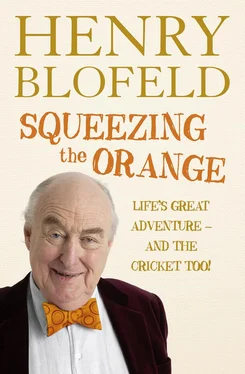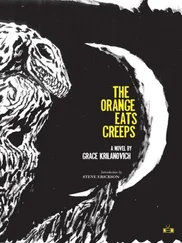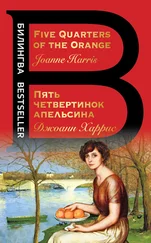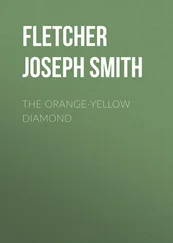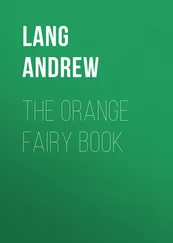1 ...7 8 9 11 12 13 ...22 I have briefly mentioned Mr Ling, who was the Venerable Bede of Sunningdale, and an awesome figure. Like Mr Fox and Mr Burrows, he had joined up with the school before the First War. He was a classical scholar, and was the principal reason why Sunningdale won so many scholarships, mainly for Eton, where most of its pupils ended up. Mr Ling was a genius as a schoolmaster. He took the sixth-form classics, and taught Greek and Latin with astonishing skill and amazing results. His most famous top scholar was Quintin Hogg, who went on to become Lord Hailsham and the Lord Chancellor, and who paid Mr Ling a most generous tribute in his autobiography, The Door Wherein I Went . When I first came across Mr Ling I thought he was even older than Methuselah. He was gruff, quietly and classically humorous, and his gleaming and absolute baldness positively oozed Greek and Latin verse and always looked as if he was made of jade. He was wisdom personified, and wore his rimless glasses in a way that suggested they were an essential adjunct to classical scholarship. He was also a passionate man of Suffolk. This gave us both a certain East Anglian affinity – I did not have the smallest affinity with the classics – even if he regarded Norfolk as the lesser of two equals. Lord Emsworth might have had dinner with him by mistake at the Senior Conservative Club in St James’s.
Mr Ling always came hurriedly into the classroom as if he had just bumped into Socrates on the stairs and, with time running short, had had quickly to put him right about a couple of things. Having virtually lost the use of his right hand by kind permission of the Kaiser in the First War, he wrote on the blackboard and elsewhere with his left hand, and in doing so was magnificently illegible. You needed to have been on the payroll at Bletchley Park to have had the slightest chance of interpreting his offerings. He did not suffer fools gladly, and as I remember he found it jolly nearly incomprehensible that anyone could be as stupid and as unreceptive to the classics as I was. He had a good sense of humour, a pleasant chuckle, and bowled gentle slow left-arm in the nets when it came to the summer term. I don’t think he ever looked much like getting anyone out, but that did not prevent him from having firm views on the forward defensive stroke.
Just occasionally I was asked to tea with Mr and Mrs Ling at their house in nearby Charters Road. Mrs Ling, who was kind in a charming, elderly way, provided more than acceptable strawberry jam and a tolerable scone or two and always loved to pull her husband’s leg. Mr Ling, because of his injured hand, was not as accurate with the teapot as he had been in his heyday, and Mrs Ling was more than prepared to give him a bit of stick for this. He would laugh at his failing, and was always more fun outside the classroom than in it. He was a remarkable man, a brilliant teacher and a friend in a slightly distant, but loyal way, even if academically you were batting well down the order.
Bob (R.G.T.) Spear was young, tall and fair-haired, and taught goodness knows what for a time. He had an electrifying affair with the under-matron, Kitty Dean, whom he married. I once caught her sitting on his knee in the tiny masters’ room between Mr Fox’s and Mr Ling’s schoolrooms, which was as near as one came in those days to hard porn. The marriage did not last, and he eked out his days as a rather penniless handicapper at Newmarket, where he died. I once or twice came across him in the Tavern at Lord’s during a Test match. A long time before, he had bowled fast for Eton: Bingo Little, perhaps, although he never met his Rosie M. Banks.
There was the altogether more garrulous and clubbable Eustace Crawley, son of the immortal golfing correspondent Leonard Crawley, who wrote for the Daily Telegraph for many years. Leonard had also been a master at Sunningdale in the twenties, and in 1925 he was picked to tour the West Indies with the MCC. He was always greatly encouraged with his golf by Mr Fox, who was captain of Sunningdale Golf Club in 1940. This was the reason why in the winter whenever it was shut we were allowed to play French and English on the course.
Eustace must have taught something, but in those days he seemed to be Gussie Fink-Nottle to his eyebrows, and was immense fun without appearing to be devastatingly effective. This was a completely false impression, for he not only won a golf Blue at Cambridge for three years, but ended up as managing director of Jacksons of Piccadilly – Gussie F would have had no answer to that. I remember lots of floppy dark hair and a most engaging chuckle.
There was also the ever genial, tall and robust Mr Squarey, who was poached from neighbouring Lambrook. He was fun, with grey hair and glasses, and was up for everything when it came to games. He also bowled a bit in the nets, without devastating effect, but he was full of good honest cricketing theory, and always gave terrific encouragement. He was a friend.
Finally there was Matron Cryer, a veritable, and adorable, Florence Nightingale who never failed to make you feel better, and could even persuade you that the weekly dose of cod-liver oil tasted pretty good. I personally went for syrup of figs, which was a legitimate alternative and tasted much nicer. Her deputy, who later reigned for years as her successor as matron, was the indomitable Pauline, who was to become every bit as much an intrinsic part of Sunningdale as Mr Fox or any of the others. I suspect she enjoyed a bit of mischief too, and she and Roberta Wickham would have hit it off. Pauline was a great character, and before I left Sunningdale she gave me a photograph of the England side to tour Australia in 1928–29.
I may have missed one or two, but what fun it was. I lived in this milieu for five years, climbing my way up the pole under the auspices of the above-mentioned dramatis personae. I played in the cricket first eleven for four years – having moved fairly rapidly from being a leg-spinner to a wicketkeeper, and I think I could always bat a bit – and in the soccer team for two. I also played fives for the school, against Ludgrove, and we invariably lost. The only real blot was my consistent slacking on the academic side of things.
My years in the Sunningdale first eleven were fantastic fun. The star of the side was Edward Lane Fox and we not only played together in the first eleven for four years at Sunningdale, we also both played for Eton for three years. He was a wonderful all-round cricketer with the discipline I always lacked. Edward also won his colours at soccer and rugger, an impressive triple Blue. He was a remarkable games player, a cricketer who went on to play for Oxfordshire and for the Minor Counties against at least two touring sides and then became an estate agent, running his own eponymous firm with a brilliance few could have matched. He also hits a pretty mean golf ball. It would be hard to imagine a kinder, more charming and less pretentious man. He has never changed in character or in looks, and well into his seventies he is still easily identifiable as the chap sitting in the captain’s seat in the 1952 Sunningdale cricket eleven photograph. Edward was a wonderful orthodox left-arm spinner who bowled with great accuracy and turned the ball sharply away from the right-hander. The representatives of Earlywood, Scaitcliffe, St George’s, Lambrook, Heatherdown and a few other schools could make little of it. As a result, stumped Blofeld bowled Lane Fox was an oft-repeated dismissal.
Edward was also an excellent and solid left-hand batsman. The one school we had difficulty with was Ludgrove, who collectively played left-arm spin more than adequately. I think I am right in saying that the last time Sunningdale beat Ludgrove home and away in the same season was in 1952, which was Edward’s and my last year. Sunningdale may have started a trifle gloomily for me, but success on the playing fields turned it into huge fun, and rapidly put an end to all that silly homesickness.
Читать дальше
